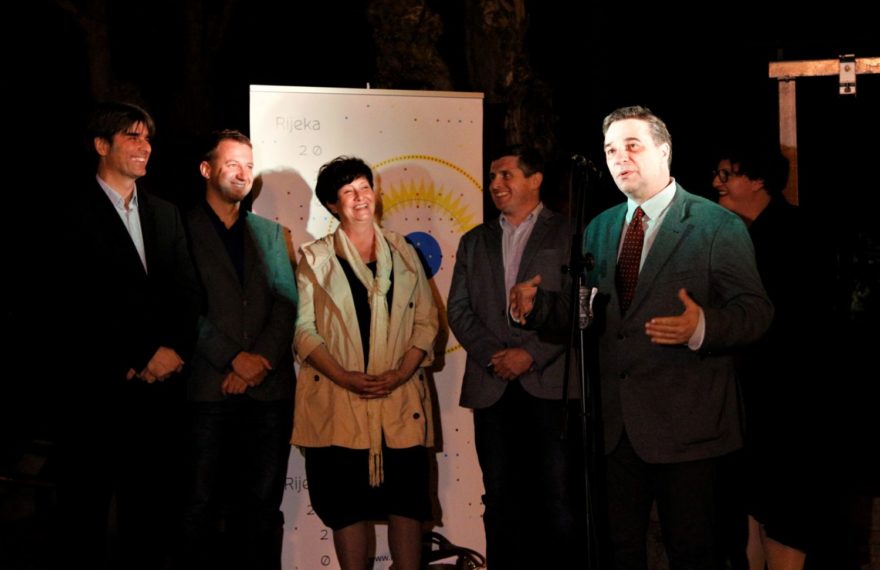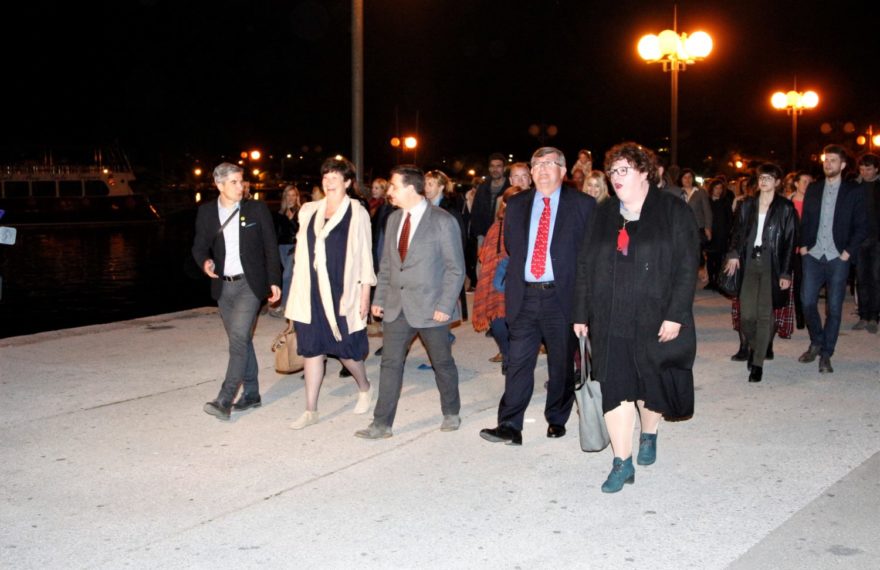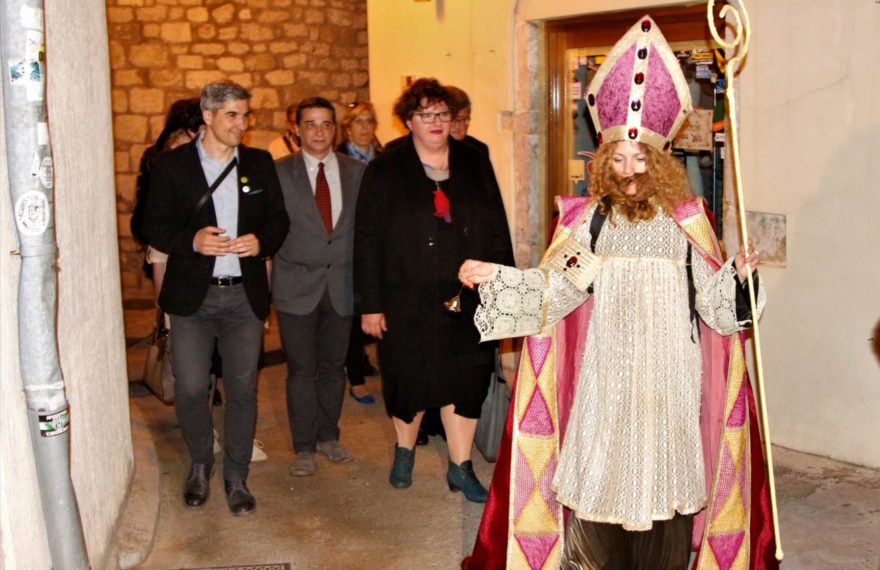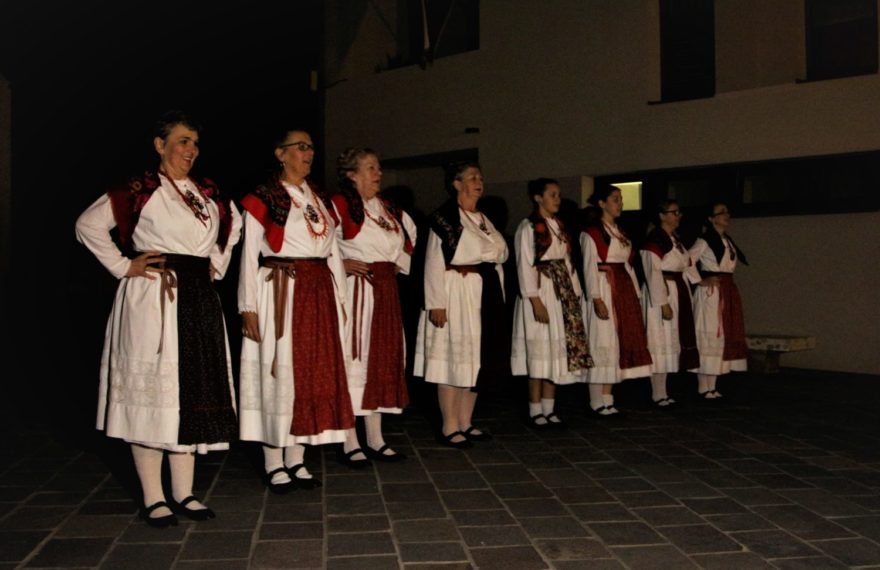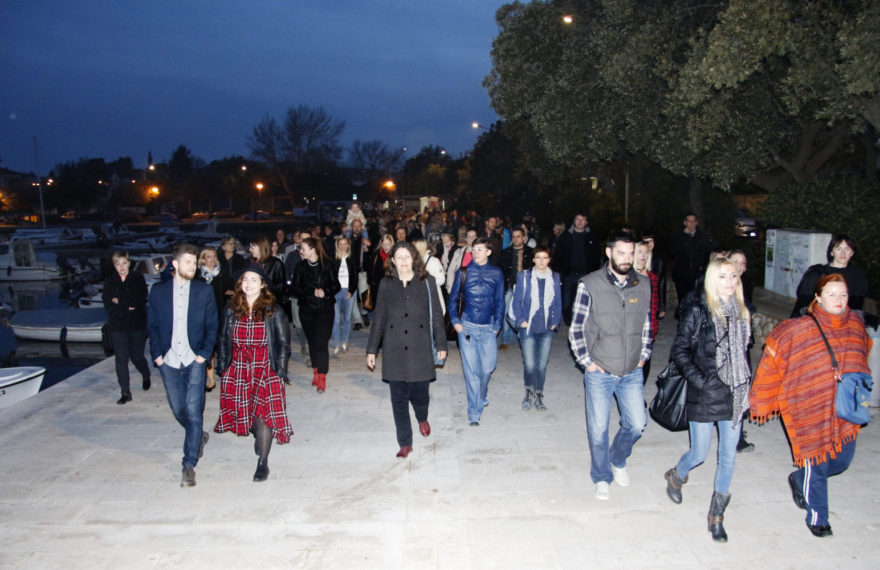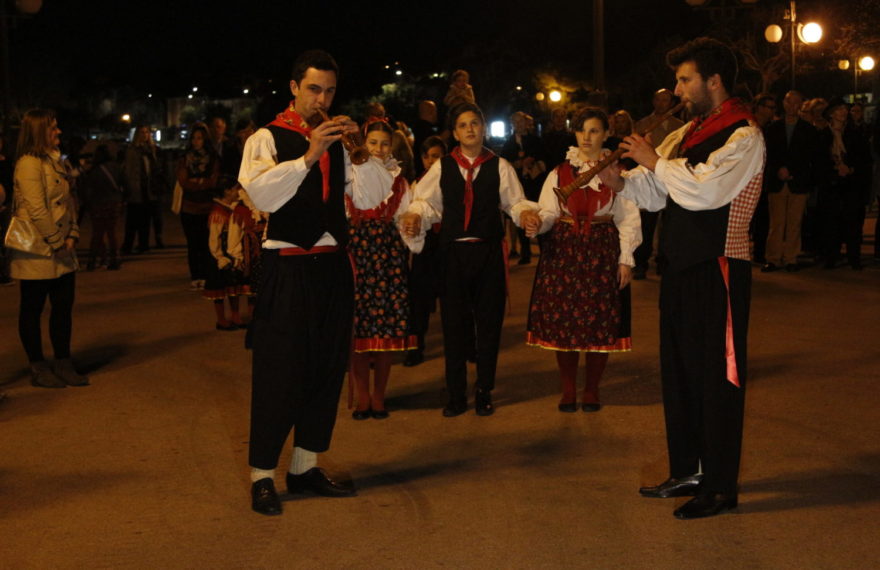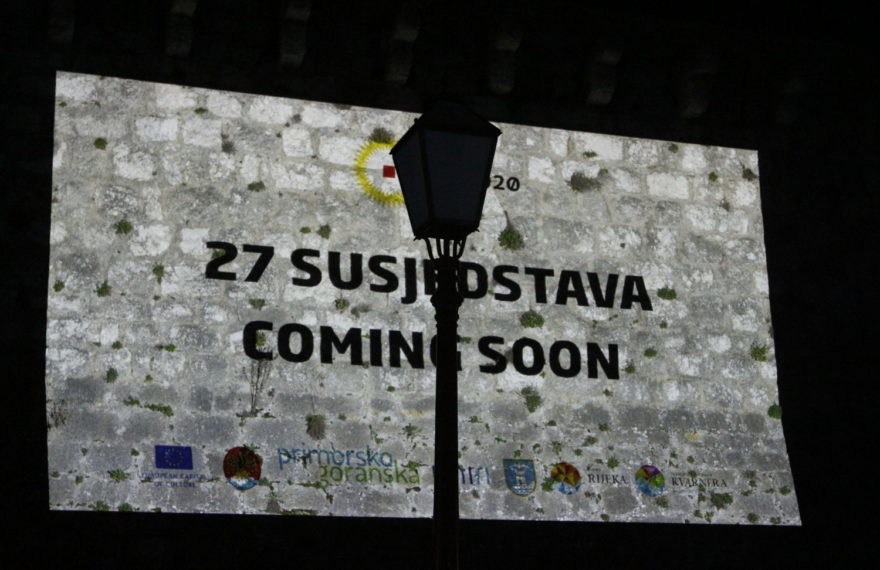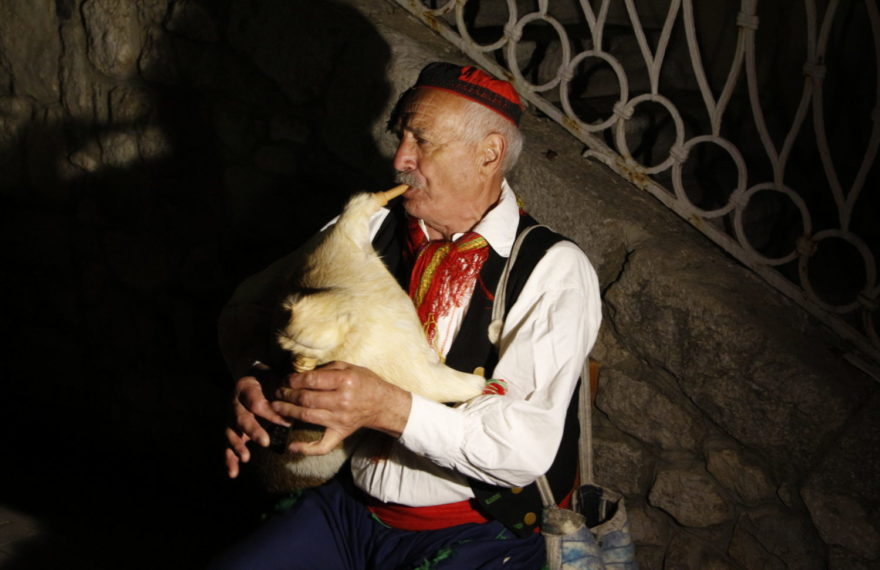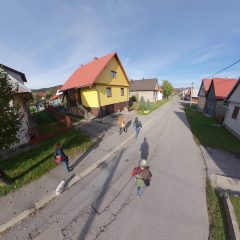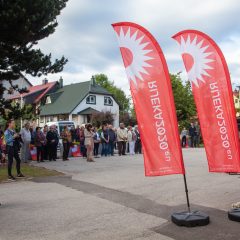A sense of being European and sharing European and cultural heritage is not predicated on administrative borders or the erasure of borders, but is instead achieved by having a deep understanding that we can share an array of common issues, challenges and problems with the residents of other European countries, as well as find ways to solve to them.
This flagship offers much more than just an interesting performance programme for the residents of Rijeka and the region, the involved participants and the programme audience in 2020. By bringing together 27 neighbourhoods throughout Primorje-Gorski Kotar County and connecting each of them with a neighbourhood from one of the 27 member states of the EU, residents of islands, the coast, the hinterland, the mountain region, Rijeka and Europe will be connected through cooperation and the sharing of experiences, customs and everyday lives. Informal connections and networks of cooperation will be the foundation for future cultural activities that will last beyond 2020.
The process of developing programmes for 2020 for the participants and the neighbourhoods in which they live and operate adds a specific dimension of growth and empowerment in culture and in social activism that addresses individually important issues. Local communities in remote urban and rural areas will become venues for cultural events and their cooperation with one another, as well as with European partner organisations and civic associations, will enable the development of valuable and good interpersonal relations and create an atmosphere for enjoying and learning from diversity.
The basic message behind the Neighbourhoods project is that we, as citizens of Rijeka and Primorje-Gorski Kotar County, as well as of Croatia, are in fact an indivisible part of Europe, which makes us true European neighbours to each other. The permanent value of this flagship lies in the people – the motivated and active citizens who realise that culture can be a driving force in the development of their living environments and can make them recognisable and great.
During 2020, visitors will have the opportunity to get to know the culture and life of the neighbourhoods by visiting their living rooms or any of the 27 neighbourhood events. The extensive event programme begins with one of the most important traditions of this region, the Carnival and the specially devised Bell-Ringers’ Symphony in Čavle. The University campus will offer a year-long scientific and educational programme and the horticultural art intervention I’m Not a Robot by the multimedia artist Darko Fritz (HR), while the Turnić-Mlaka Neighbourhood will link up, inter alia, with the International Space Station. There will be dancing in various locations, including the ČAgaj 2020 Festival on Krk Island and the Gomirje Accordion Mundial Festival. Unije Island will celebrate the wind with a kite-flying festival, while a special entertainment programme will be dedicated to the fellow townspeople scattered around the globe. The border neighbourhood of Drenova will connect culture, nature and digital technologies. A series of documentaries will also be screened via the Network of Cinemas in Exotic Locations.
The Croatian neighbourhoods are as follows: Lovran, Opatija, Matulji, Kastav, Pehlin, Drenova, Škurinje, Turnić and Mlaka, Student Campus in Trsat, Jelenje, Čavle, Praputnjak, Kostrena, Crikvenica, Novi Vinodolski, the island of Rab, the island of Unije, the town of Cres, the town of Krk, Malinska, Vrbnik, Gomirje, Mrkopalj, Fužine, Delnice, Brod na Kupi and Gornji Kuti.
These towns and villages will connect with 27 organisations, cities or towns from the European Union: Immenstad (Germany), Prague (Czech Republic), Trieste (Italy), Ružomberok (Slovakia), Selnica ob Dravi (Slovenia), National Museum of Archaeology (Malta), Urban Gorillas (Cyprus), Roma Education Fund (Romania), Camp (France), Bilbao (Spain), Riga (Latvia), Estonian Museum of Natural History (Estonia), Kaunas (Lithuania), Kinvara (Ireland), Gornja Bela Rečka (Bulgaria), GreenWise People (Great Britain), Oulu (Finland), Lydenskab (Denmark), Pomerania (Poland), Disorder (Sweden), Stichting Bewegend Beeld (Netherlands), Global Water Partnership Mediterranean (Greece), Center for Ecological Learning (Luxembourg), 4iS (Portugal), Pecs (Hungary), Mons (Belgium), Vienna (Austria).
